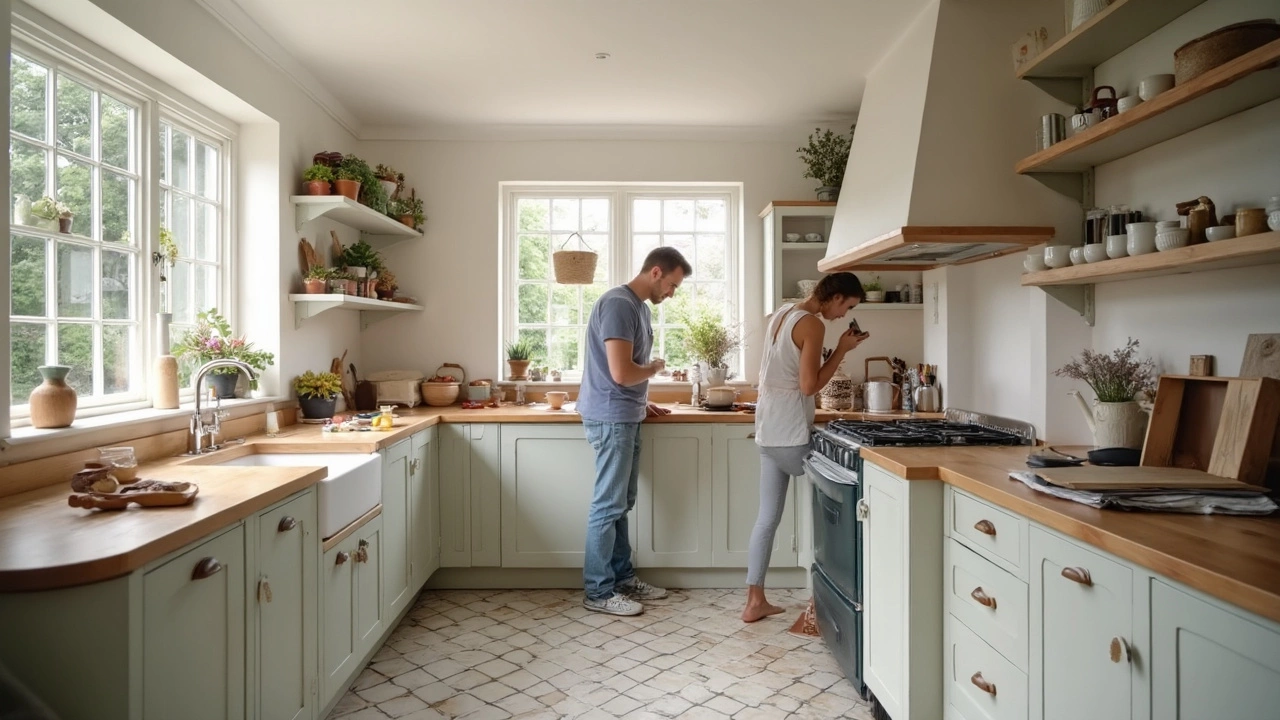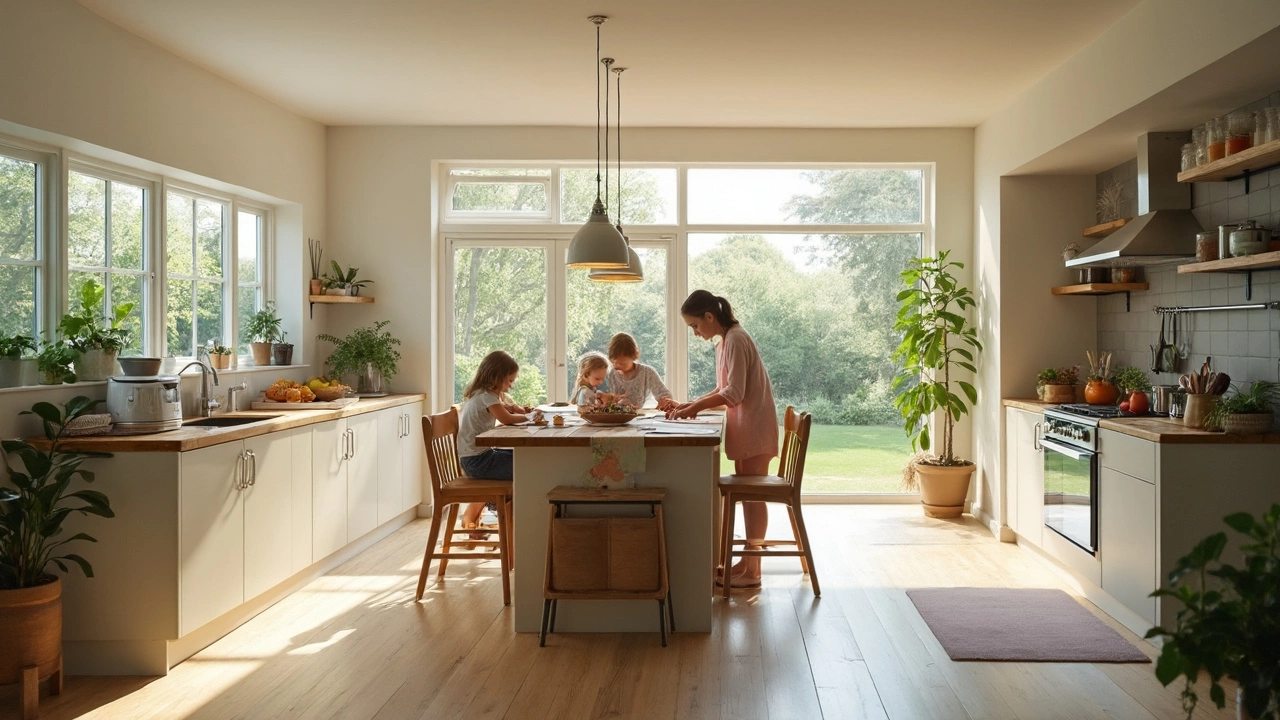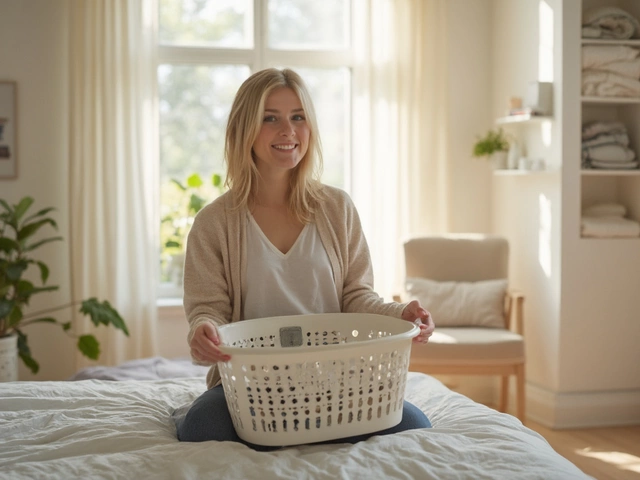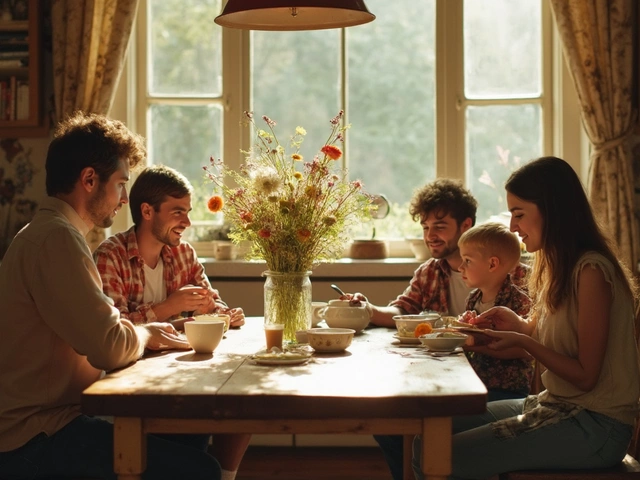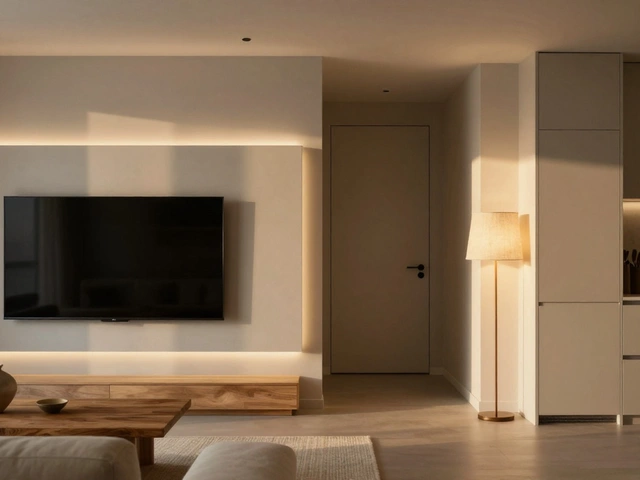Kitchen Layout Ideas: Practical Tips to Design Your Perfect Kitchen
If you’re staring at a blank floor plan or a cramped cooking space, you’re not alone. A good kitchen layout makes cooking easier, keeps traffic smooth and makes the room feel larger. Below you’ll find the basics you need to start planning right away.
Get to Know the Work Triangle
The work triangle links the fridge, sink and stove – the three spots you use most. When those three points form an easy‑to‑move triangle, you waste less time walking back and forth. Aim for each leg of the triangle to be between 4 and 9 feet and keep the total distance under 26 feet. If you have a narrow galley kitchen, push the fridge to one end, the stove in the middle and the sink at the opposite wall. This keeps the flow natural without crowding.
Don’t let cabinets or islands block the triangle. Even a small island can work if you leave at least 42 inches of clearance on all sides. If the triangle feels cramped, consider moving a single appliance – often the fridge is the easiest to shift – to open up space.
Smart Solutions for Small Kitchens
Limited square footage doesn’t mean you have to sacrifice function. Pull‑out pantry shelves make deep cabinets accessible without digging. A fold‑down table offers prep space that disappears when you’re done. Use the walls – open shelves, magnetic knife strips and hanging pot racks keep countertops clear.
Choose light colours for walls and cabinets; they bounce light and create the illusion of space. Glass‑front cabinet doors let you see inside without opening every door, and they add visual depth. If you can afford it, a slim, sliding pantry door slides into a wall pocket instead of swinging outward.
When you can, go for an open layout. Removing a non‑load‑bearing wall between the kitchen and a dining area opens up the room and improves ventilation. Even a half‑wall or a wide pass‑through window can give the same airy feel.
Once you have the basic layout, fine‑tune with zones. Group cooking tools near the stove, cleaning supplies near the sink, and food storage close to the fridge. This reduces extra trips and keeps everything where you expect it.
Don’t forget lighting. Under‑cabinet LEDs brighten work surfaces without glare, while a pendant above a kitchen island adds style and task light. Dimmer switches let you switch from bright prep lighting to a cozy dinner mood.
Finally, test your plan. Walk the imagined path from fridge to sink to stove, and back to the pantry. If you feel cramped or have to twist around obstacles, adjust the layout before you start buying cabinets.
With these simple rules – work triangle, smart storage, light colours and proper lighting – you can turn any kitchen shape into a functional, pleasant space. Start sketching, measure twice, and enjoy a kitchen that works for you.

